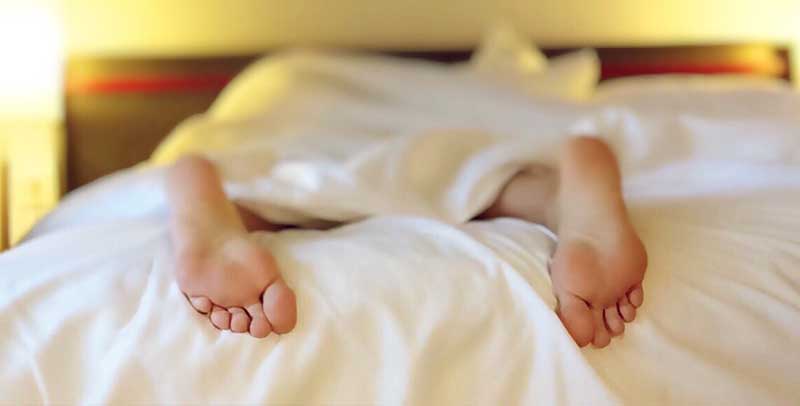Some helpful tips for a quality night’s sleep
Understanding what happens during sleep also means understanding the sleep cycle. During the night, our bodies cycle through two recurring phases of sleep: REM (rapid eye movement) and NREM (non-REM or non-rapid eye movement). Both phases are important for different functions in our bodies. For example, a hormone that is essential for growth and development is only released in the last stage of NREM sleep.
If the REM and NREM cycles are interrupted multiple times throughout the night — either due to snoring, difficulties breathing or waking up frequently throughout the night — then we miss out on vital body processes, which can affect our health and well-being not only the next day but on a long-term basis as well.
Some helpful tips for a quality night’s sleep
DOs
- Go to bed and wake up at the same time every day. Maintain a routine and rhythm, even at weekends or after a poor night’s sleep.
- Understand your sleep requirements. Most people need at least six hours sleep for normal memory and brain function.
- Spend some time in natural light. This helps promote melatonin production in your body. Melatonin is a hormone that allows you to know when to sleep and when to wake up.
- Create a comfortable sleeping environment. Make sure your bedroom is cool, quiet and dark. Avoid distracting noises and light. If you don’t have a comfortable bed or pillow, consider changing them.
- Use your bed only for sleep (and intimacy!). Avoid watching television, studying, eating or working in bed. Your brain should associate your bed with sleeping.
- Feel relaxed and warm before bed. Reading a book or taking a warm bath may help you unwind and de-stress before bedtime.
DON’Ts
- Consume caffeine in the evening. Avoid tea, coffee, soft drinks, and chocolate. Instead, try warm milk or herbal drinks.
- Drink alcohol before bed. Alcohol may worsen snoring or sleep apnea; it may cause fragmented sleep and wakes you up too early. You may also need to use the toilet more often.
- Exercise just before bed. Exercise stimulates the body and makes it difficult to fall asleep. Make sure you finish your workout at least two hours before bedtime.
- Eat a heavy, spicy or sugary meal before bed or go to bed hungry. If you’re hungry, a light snack might help you sleep.
- Smoke. Nicotine is a stimulant that may make falling asleep more difficult. There are many benefits to quitting smoking.
- Nap during the day. A daytime nap may reduce your body’s need to sleep at night.
- Engage in stimulating activity before bed. Avoid watching exciting programs, playing competitive games, paying bills or holding important discussions…. anything that keeps your brain wide awake!
If you’ve tried improving your sleep, but still wake up feeling unrefreshed, there might be more to the story, and it’s important to talk to your doctor.
Click here for 10 more tips for a better nights sleep


Recent Comments